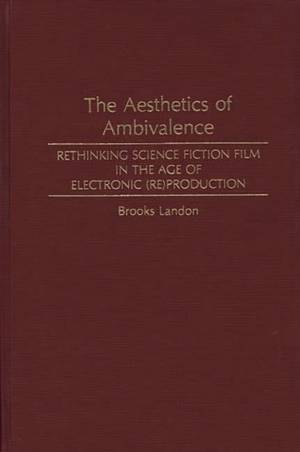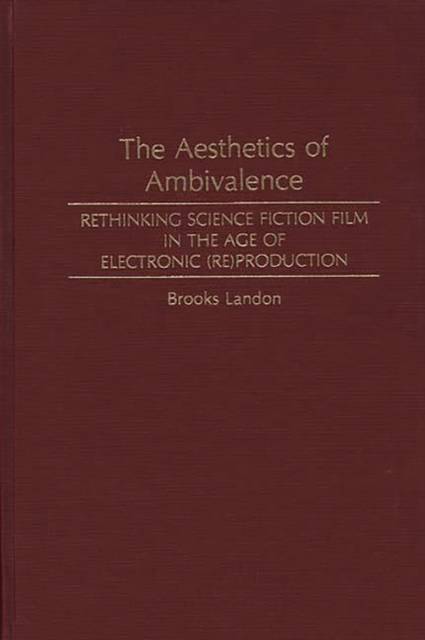
- Retrait gratuit dans votre magasin Club
- 7.000.000 titres dans notre catalogue
- Payer en toute sécurité
- Toujours un magasin près de chez vous
- Retrait gratuit dans votre magasin Club
- 7.000.0000 titres dans notre catalogue
- Payer en toute sécurité
- Toujours un magasin près de chez vous
The Aesthetics of Ambivalence
Rethinking Science Fiction Film in the Age of Electronic (Re) Production
Brooks LandonDescription
Brooks Landon's book is wide-ranging, thought-provoking, and near state-of-the-art. It concerns science fiction film and, toward the end, almost becomes SF in its provocative speculations on the future of such film. His study is really two books in one. The first part argues that most criticism of SF film has been inadequate because it is based on literary rather than film-specific standards. The second argues that SF film will soon become either obsolete or be totally transformed through new computer technology. What ties them together is the author's concern with what might be called the SF ethos or SF thinking, so that science fiction can be seen to encompass not only SF in print, film, TV and comic books, but has become all-pervasive in contemporary culture.
At present, Landon argues that SF film may have exhausted itself as a genre but new electronic technology--computer animation, interactive narratives, and virtual reality--promises to radically transform SF film and possibly create a synthesis of the divergent trends of SF literature and film. Production technology has become the new story, one more interesting than the narrative it ostensibly supports. Landon believes we are at the threshold of a new age, similar to the pioneer years of filmmaking a hundred years ago.Spécifications
Parties prenantes
- Auteur(s) :
- Editeur:
Contenu
- Nombre de pages :
- 224
- Langue:
- Anglais
- Collection :
Caractéristiques
- EAN:
- 9780313256875
- Date de parution :
- 30-08-92
- Format:
- Livre relié
- Format numérique:
- Genaaid
- Dimensions :
- 157 mm x 242 mm
- Poids :
- 535 g

Les avis
Nous publions uniquement les avis qui respectent les conditions requises. Consultez nos conditions pour les avis.






